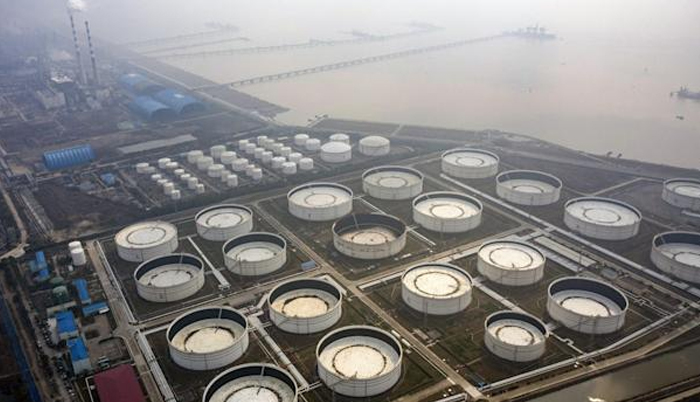![]() Home > World Business
Home > World Business
China Is Spoilt For Choice Of Oil As Many Avoid Russian Barrels

![]() May 12th, 2022 | 14:15 PM |
May 12th, 2022 | 14:15 PM | ![]() 231 views
231 views
CHINA
Chinese oil buyers are spoilt for choice right now even as lockdowns hurt demand as they can opt for everything from discounted Russian crude and sanctioned Iranian oil to regularly-taken Middle Eastern barrels.
While a wave of sweeping anti-virus curbs has put a dent in current consumption, China has an ample list of supplies that refiners can tap once usage rebounds. With Russian cargoes -- from ESPO from the Far East and Urals from western fields -- being avoided by many other buyers given the war in Ukraine, that’s cleared the way for mainland takers. At the same time, millions of Iranian and Venezuelan barrels are still floating in Chinese waters.
The complex picture shows that China has emerged as one of the beneficiaries of the conflict in Europe, which sparked a surge in crude prices to the highest since 2008 followed by a period of volatility. Beijing has stood by Moscow since the invasion, effectively clearing the way for refiners in the world’s largest oil importer to discreetly take Russian barrels that are being shunned by the US and UK. In addition, the European Union is working toward its own ban.
See also: Shunned Oil Piling Up Off China as Virus Outbreak Worsens
At least one major Chinese refiner has taken less term supply from Saudi Aramco for cargoes to be shipped in June, according to traders who asked not to be identified. That contrasts with some other North Asian refiners that asked for additional supply from the Saudis, with Middle Eastern barrels relatively cheaper than comparable long-haul cargoes from the U.S. and North Sea.
Chinese oil consumption remains at the center of attention as the renewed lockdowns, including in Shanghai, raise questions over how much demand will drop and for how long. In May, Chinese state refiners are planning to process 4% less than in April, according to industry consultant OilChem.
“The Covid situation is feeding into an increased level of uncertainty surrounding oil demand and the outlook for Chinese refinery runs,” said Jane Xie, a senior oil analyst at data and analytics firm Kpler. “The prospect of an EU ban on Russian oil will inevitably turn some attention onto China, whether they can pick up more barrels once their demand woes are over.”
About 17 million to 20 million barrels of crude, mostly Iranian and Venezuelan, are floating off China, according to shipping analytics firms Vortexa and Kpler. While that’s down from 20 million to 30 million barrels last month, these cargoes have faced facing difficulty finding buyers since February on sluggish demand from private processors, Li said.
Traders said Venezuelan crude was being offered at record discounts with flexible yuan-payment terms, while cargoes of Russia’s Urals were also being shown at steeper discounts of $8 a barrel or more to Brent on a delivered basis to China. In the latest reported deal late last month, a Chinese processor in Shandong bought Urals at a discount of $6.30 to $6.50, they said.
“It could still pay off for Chinese refiners to wait for further price drops, given that the rise in Russian oil intake so far has just been 3%, based on the current pace-to-date in May,” Xie said. Still, that doesn’t seem to have occurred definitely yet, she said.
Source:
courtesy of BLOOMBERG
by Sharon Cho
If you have any stories or news that you would like to share with the global online community, please feel free to share it with us by contacting us directly at [email protected]